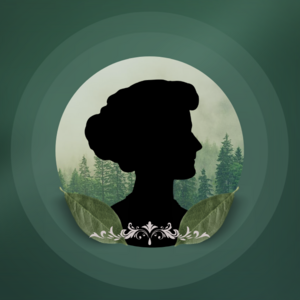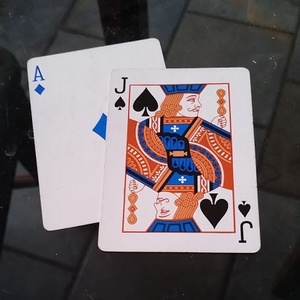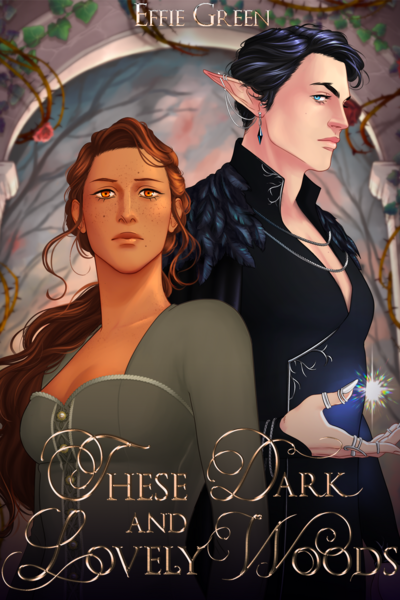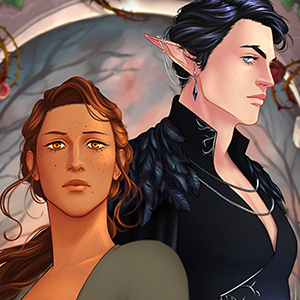I crouched beside the mutilated rabbit carcass. It was the tenth I’d found in two weeks. Each had suffered a different fate: the first had bled out a few feet away from its ears; the seventh had been impaled on the antlers of a long-dead stag.
This one had a hole where its guts should be, as if something had taken a bite out of it. Next to it was a pile of intestines on a generous chunk of brown rabbit pelt. The teeth marks matched neither wolf nor bear, but no human mouth could be this big.
It’d be a while before the flesh would start to rot, considering the weather. The crisp late-autumn air turned my breath into mist, and the sun was a pale spot in the sky, obscured by an even sheet of white clouds.
I turned the stiff remains over with my gloved hand and stuck a finger under the skin to see if anything was left of the ribs. Why would a predator take a bite out of its prey only to spit it out? To watch it twitch and die for amusement? The thought made me shudder.
I sat up straight, listening for birds. Chirps flowed between the naked branches and I breathed out; whatever had done this wasn’t around anymore.
“I’m sorry, sweet thing,” I mumbled to the bloody remains. “I’ll give you a proper burial when I return home.”
Based on the locations of each rabbit, combined with the freshness of the corpses, I figured the creature was moving closer and closer to Dorotea. I pulled my hatchet out of its sheath on my hip and swatted at a spent berry bush as I continued my trek toward town.
Should I warn them? Wolves and bears were common sights in these woods, but anything else would be enough to cause panic. Then again, nobody was supposed to be out here. People expected the woods in the north, especially beyond the wall, to be dangerous. Any warning I gave would be met with scorn and more than one “I told you so.”
No, I’d keep this to myself. I’d lived in this forest for as long as I could remember and never encountered anything like this. Besides, it only targeted small prey, and I had traps around my home to protect me should the creature decide for a change in diet.
I’d find it and kill it, in time.
The only thing separating — or, according to some, protecting — Dorotea from the Emerald Vast was the wall of iron. It closed off the Choke, a strip of land connecting Adelheid to the unknown forests of the north. The wall was a behemoth of heavy gray stone in a steel frame, stretching beyond the limits of the town. Its few iron doors were never locked, though also rarely opened, except the one closest to the path I took to and from my family’s estate.
The metal wailed as I pushed it open, sending birds flying toward the sky. I’d once taken the time to test each door to see if they were all equally loud, and they were. When I was little, I’d thought their wretched noise was a result of age and neglect, not design. I knew better now.
The wind picked up as soon as I left the forest, tearing into the dried grass covering the vast fields north of my home. I had just wrapped my coat tighter around myself when I spotted three pale smudges in the distance — one of them waved at me.
I waved back with a smile. I hadn’t seen Sinéad in three weeks now, though it felt longer than that, it always did. There were no people in this world that could make me miss them like she could.
“Sidra!” she hollered. Then she grabbed her skirts and ran toward me, leaving her friends behind.
“Why are you out without a coat?” I shouted.
It was a miracle she didn’t trip over her own feet in that long dress of hers, but she did tear up dirt behind her, staining its hem.
“It wasn’t so cold a moment ago! I didn’t think I’d need one!” Sinéad gasped with an apologetic smile, as though I was the one freezing.
We met in the middle of the path and embraced tightly. I breathed in the familiar scent of lavender soap, curiously tinged with cinnamon. Had she been baking?
When we released each other, the air seemed colder than before. I shrugged off my coat and threw it around her shoulders. It was a fair bit too small, though still better than nothing.
“But what about you?” Sinéad protested.
“You know I never get sick.”
She looked at me with wide eyes full of worry, but didn’t argue further. Instead, she grabbed and squeezed my hand gently, “I’ve much to tell you!”
Red strands of hair escaped from under her light blue bonnet, which she held to her head to make sure the wind wouldn’t carry it off. Her freckled cheeks were rosy from the cold and exercise, and she smiled so wide one could fit peas into her dimples.
“Then I can’t wait to hear it.”
Sinéad hooked her arm around mine and bounced beside me as we walked. She hummed to herself instead of sharing this apparently wonderful news while I tried to remain patient, assuming she wanted to tell me the whole thing uninterrupted once we were alone.
When we returned to her patient friends, I nodded hello. They curtsied with stiff expressions. One of them, the brunette, threw a dubious glance at my coat hanging off of Sinéad’s shoulders. Despite having met both numerous times, I could never remember who was who. I wasn’t well-acquainted with the people in Dorotea — to the disappointment of my family and the relief of the people, no doubt.
“My apologies for running off. I will try to contain my excitement next time,” Sinéad chirped.
“It is only natural to want to share such joyous news with a family member,” replied the blonde girl.
“Indeed! Shall we go inside, then?”
The girls exchanged alarmed looks.
“We wouldn’t want to intrude,” said the brunette. “I’m sure you and Miss Carver have a lot of catching up to do.”
“You’re not intruding at all!” Sinéad insisted, too polite to acknowledge their discomfort with her half-wild stepsister.
“I think it would be inappropriate to impose ourselves on a family matter. Wouldn’t you agree, Rhi?” said the blonde.
“Indeed,” replied the brunette.
Right, the blonde was Alma, the brunette Rhiannon. Surely I wouldn’t forget this time?
Sinéad’s smile faded while her grip on my arm tightened.
I almost felt bad for her, though she should know better by now. This wasn’t the first time the inhabitants of this town refused to associate with me.
“Then I look forward to next week, Rhi! I’ll bring apple pie, like we discussed!”
With that, we parted ways, Alma and Rhiannon returning the way they’d come, and Sinéad and I walking eastward to our home.
“And so the Atwoods’ carriage broke down in the middle of the square and Mrs. Atwood claims it was sabotage, see, because her daughter was to take the carriage to the Nelsons’ ball a fortnight ago — and it was to be her debut — and Mrs. Atwood was not-so-subtly implying that the Desmonds were behind it. You know, because of the whole powdered donut fiasco and because she thinks the Desmonds think Miss Atwood is a threat to Miss Desmond’s prospects with Mr. Howard Nelson …”
“Sinéad …”
“… and in response, Mr. and Mrs. Desmond are now spreading rumors about doctors and clerics visiting the Atwoods in the middle of the night — supposedly for Mrs. Atwood’s mental treatment? They’re implying she is delusional, see, and I can’t blame them for defending themselves, but I also think that the carriage debacle is very fortunate timing for them even though I’m hesitant to take any definite side on this, but Rhiannon says —“
“Sinéad!”
She snapped her mouth shut with a knowing smile and blinked innocently, “What? I was just catching you up on the latest gossip. Don’t you want to know what’s been going on while you were away?”
“If I did, I’d be around to see it,” I scoffed. “Now, what was that good news you were going to share?”
Predictably, she shrugged and patted my hand where it was squeezed in the soft bend of her elbow.
“I was getting there! Now, Rhiannon says that the Atwoods are actually rapidly losing money — you know, because of Mr. Atwood’s supposed gambling debts — and that this is only a ploy to stir up gossip to cover for the fact that they can no longer afford carriage maintenance and will soon lose even their horses. But Alma says —“
I did my best, truly, but even though it was Sinéad speaking, I couldn’t for the life of me keep up with whatever she was saying. Names disassociated from faces floated in and out of the stream of words, events and dates mixed with opinions and speculations as if both had equal value, all becoming a sludge of information that was impossible to navigate lest you were at the very center of society.
I lived in a cottage several miles away from town; Sinéad may as well have been casting a spell in an ancient language. I was starting to get so confused I almost stumbled over the steps of our porch.
“Wait, so are the Desmonds the ones that were hosting the ball?” I asked as we entered the hallway.
“No-no, the Desmonds were to attend, the Nelsons were hosting. But the Desmonds are supposed to host in a fortnight. It’s unlikely the Atwoods will be invited, but it might look like they’re admitting guilt if they don’t invite them —“
“They’re supposed to invite the people who accused them of sabotage? Seems backwards.”
“That’s the thing, it’s not clear whether they’ll be invited or not, because —“
“Ah, Miss Carver. You’re back.”
The housekeeper, Mrs. Tremaine, came into the hall from the servant entrance and gave me a quick glance, her large, stern face carefully blank, “And how long will you be staying this time?”
Sinéad fell silent as well and joined her in staring at me. Her gaze was softer and more curious than that of Mrs. Tremaine, who made it obvious that any answer I offered would be wrong.
“A few days, maybe,” I replied. I rarely stayed longer, but I also rarely knew exactly how many days it’d be each time. My schedule was bound only to my whims.
Mrs. Tremaine gave a short nod and took a step to her left, revealing a mousy young woman standing behind her hefty frame, staring at me like I was some mythical beast spoken of in legend. The girl shifted on her feet and dropped her gaze to the floor after our eyes met.
“This is Sarah. She’s the new housemaid hired by the mistress. Sarah, this is Miss Sidra Carver, the master’s daughter.”
Sarah curtsied and mumbled something that sounded like it being a pleasure to meet me.
I wasn’t sure what I was expected to do. Clara was the one in charge of the few servants they kept. Besides, hadn’t there been a different housemaid only a few months ago? I could’ve sworn I saw some young woman help Sinéad change her bedsheets once.
I turned to Sinéad, “What happened to, um, what was it? Emma?”
“Emma got married, remember? It was a lovely wedding, too. Mother and I made macarons!” Then a spark lit up her gray eyes. “Sarah, would you be so kind and bring some tea and muffins to my room? The miniature blueberry ones.”
“Two cups of tea, Miss Sinéad?” said Sarah in a tone that was a lot more relaxed and familiar.
“Yes, thank you.”
“And does Miss Carver require a bath to be prepared before tea?” Mrs. Tremaine said, her voice a little too loud.
Sarah blushed deeply while Sinéad’s smile slipped from her face, but she said nothing in reply. The question wasn’t addressed to her, and she probably thought I could use a bath as well.
“Sure,” I said, shrugging to hide my annoyance. I supposed servants had a right to make fun of their employers, though I doubted that’s what Father and Clara were paying them for.
“Very good. Sarah will let you know when the tub is ready.”
Both housekeeper and maid curtsied and vacated the hall silently, leaving Sinéad and me in uneasy silence. From behind the door came Sarah’s voice, “That was a little cruel, Mrs. Tremaine.”
“It is also cruel to show up looking like that in a civilized home. Guess who cleans all that dirt she dragged in? You do.”
I glanced down to my boots. Sinéad’s weren’t much cleaner in comparison.
“Don’t mind them, they don’t know you as well as the rest of us,” Sinéad said gently. She patted me on the shoulder, adding, “Now, let’s go upstairs and see what you’ll wear today!”












Comments (3)
See all